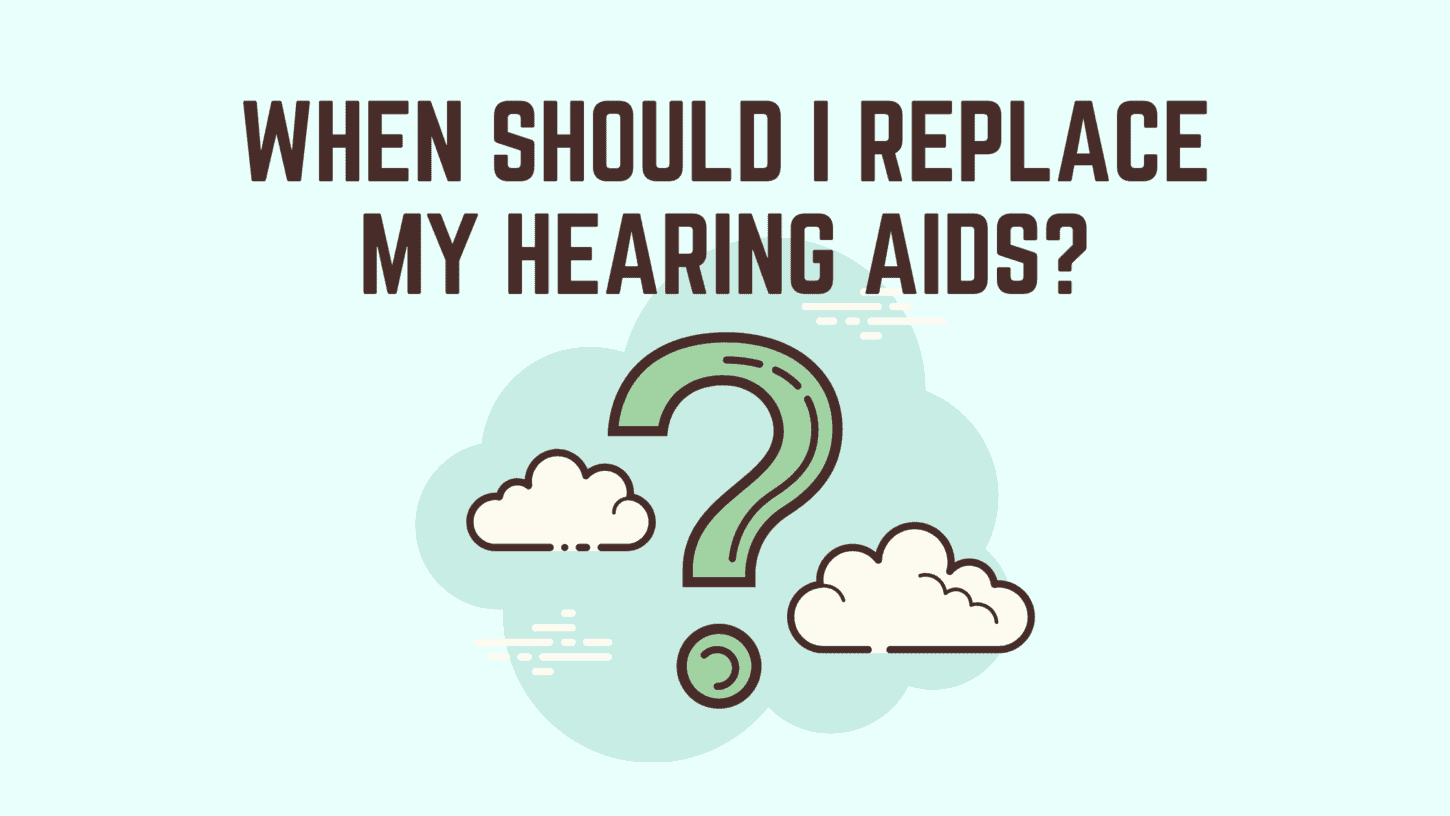Hearing aids are an important investment. They can help you hear all the sounds you’re missing. You’ll be able to hear conversations, reconnect with your loved ones, and enjoy a better quality of life. When you’re considering new hearing aids, you’re probably wondering how long hearing aids will last.
On average, most hearing aids will need to be replaced every 4 to 6 years. However, there are several factors that will impact the lifespan of your next hearing aids.
Hearing Aid Style
Some hearing aids styles have a longer lifespan than others. Behind-the-Ear hearing aids usually have a longer lifespan than In-the-Ear hearing aids. That’s because hearing aids worn in the ear are exposed to more earwax, moisture, and sweat. After a few years this can start to affect the sound quality, and your hearing aids may need to be repaired or replaced.
Where You Store Your Hearing Aids
Do you store your hearing aids in the bathroom overnight? This might reduce the lifespan of your hearing aids! The bathroom can be the most humid room in the house. Keeping your hearing aids in the bathroom can damage the hearing aids and cause a lot of extra wear and tear. Hearing aids will last longer if you store them in a safe, dry spot in your bedroom, away from any children or pets.
Frequent Cleaning
One of the best ways to increase the lifespan of your hearing aids is through daily cleaning. This can make a huge difference in your hearing aid performance. Keeping your devices clean can maintain the sound quality and reduce the need for repairs. Daily cleaning will remove any dust, skin oils, earwax, or dirt from the hearing aids. Daily cleaning also removed any buildup of moisture. When you clean your hearing aids every day, you will prevent a build up of earwax, dirt, or dust, and increase the lifespan of your devices.
Frequent Maintenance
Along with daily cleaning, you can keep your hearing aids in tip top shape with regular maintenance. For example, some hearing aids have replaceable parts like the earpiece tips or the earmold tubing. You should replace these parts whenever they show signs of damage. Other components that may need maintenance include the battery door, the microphone covers, or the earmolds. Getting maintenance done as needed will keep you hearing aids in great shape, increasing the lifespan of your devices.
After several years, hearing aids manufacturers may stop making replacement parts for your model of hearing aid. As your hearing aids get older, the cost of repairs can also increase as more parts of the hearing aid need to be fixed. If you can no longer get replacement parts, or the cost of repairs are high, it’s probably time to get new hearing aids.
Changes in Hearing
Sometimes you may need to replace your hearing aids even though they still work just fine. If your hearing needs change drastically, you may consider getting new hearing aids sooner than 4 to 6 years. Or if you’ve had a change in lifestyle, such as changing jobs or retiring, you may also consider new hearing aids that are better suited to your new hearing needs.
New Programs and Features
Hearing aid technology gets better every year. Your current hearing aids might last for another few years, but new connectivity features or rechargeable features may have caught your eye. After several years you may want to upgrade your hearing aids. Programs and features that were top-of-the-line when you first got your hearing aids are probably standard features today. And you can find exciting new technology that improves hearing aid performance even more.
When to Update Your Hearing Aids
Are you shopping for new hearing aids? Think about your lifestyle and hearing needs during the next 4 to 6 years, and choose hearing aids with the programs that help you hear in these settings. After 4 to 6 years you can re evaluate how well your hearing aids are working, if your hearing has changed significantly, or if there are new programs you’re excited to try.
Our hearing health specialists are here to help you monitor your hearing health with annual hearing exams. We’ll also perform routine cleaning and maintenance, and help you make your hearing aids last even longer.


